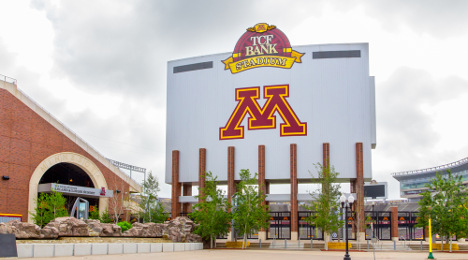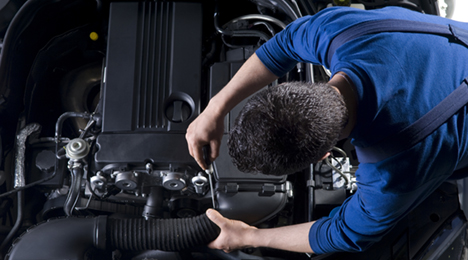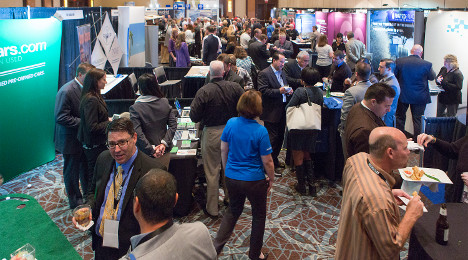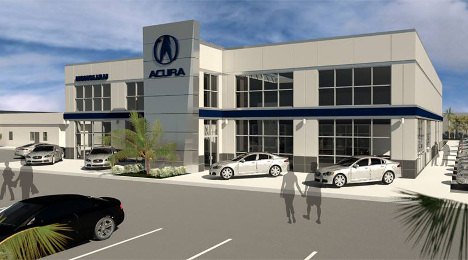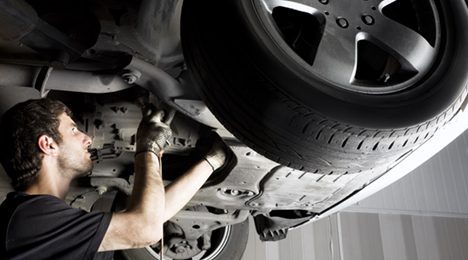CarMax managed to keep its gross profit per used vehicle turned above $2,100 during a quarter that saw the company’s retail sales climb more than 9 percent.
According to the company’s second-quarter financial statement released on Tuesday, CarMax’s total used vehicle unit sales grew 9.2 percent, and comparable store used unit sales increased 4.6 percent versus the prior fiscal year’s second quarter.
“Comparable store used unit sales were driven by improved conversion, which benefited from the strong execution of our store teams,” CarMax officials said about Q2 of its current fiscal year that ended on Aug. 31.
Company dealerships retailed a total of 156,516 used vehicles in Q2, up from 143,325 units a year earlier.
The gross on those retailed units came in at $2,166, just $7 less than the year-ago quarter.
Meanwhile, CarMax highlighted that its wholesale vehicle unit sales grew 8.7 percent year-over-year. The company sold 106,522 units through its wholesale division, up from 97,989 units in Q2 of its previous fiscal year.
“Wholesale unit sales benefited from the growth in our store base and a calendar shift that resulted in one extra Monday auction date compared with the prior year’s quarter,” CarMax officials said.
“We hold a majority of our wholesale auctions on Mondays,” they continued. “Excluding the extra Monday, wholesale vehicle unit sales would have increased approximately 5.0 percent year-over-year.”
Not only did the wholesale volume rise, CarMax enjoyed an 8.8-percent improvement in wholesale vehicle gross profit per unit to $951 from $874.
On the top line, CarMax reported that its net sales and operating revenues increased 7.9 percent to $3.88 billion. As a result, the company’s total gross profit increased 12.5 percent versus last year's second quarter to $521.4 million. Part of that gross profit rise came from a $10.4 million one-time increase in service department gross profits.
“This increase resulted from a change in timing in our recognition of reconditioning overhead costs. These costs, which previously had been expensed as incurred, are now allocated to the carrying cost of inventory,” CarMax said.
Editor’s note: For more coverage of CarMax’s Q2 performance including commentary from company executives, watch for a report coming in a future installment of Auto Remarketing Today.
CarMax already has high-profile partnerships with a pair of professional football teams — the New England Patriots and the Denver Broncos. On Monday, CarMax ventured in the college gridiron ranks with a new partnership with the Minnesota Golden Gophers.
As part of the multi-year sponsorship agreement through Learfield Sports' Gopher Sports Properties, CarMax is now the official used car retailer of the team. CarMax will receive extensive branding within TCF Bank Stadium and the surrounding footprint, as well as media, digital and social elements throughout the football and basketball seasons.
“The Minnesota Golden Gophers are an integral part of the community, and we are looking forward to a great partnership as we look to expand our overall presence in the Minneapolis and St. Paul area,” CarMax chief marketing officer Jim Lyski said.
“Our focus will be to use this partnership to better serve our customers and fans of the Golden Gophers,” Lyski said.
Like its partnerships with the professional teams, CarMax also is using its relationship with the Golden Gophers to conduct the promotion, the Bright Side of Game Day. The campaign will give fans the chance to win VIP packages to home games by sharing via Instagram how they are enjoying the Bright Side of Game Day using the #GophersBrightSide.
The promotion will also come to life through a fireworks display, a first for the Gophers, following a home game this season.
Additionally, CarMax will partner with the Gophers on their Military Appreciation Day on Oct. 17 to honor local members of the military.
“This partnership and consumer activation is just one way CarMax is hoping to connect more with our consumers and share our stress-free, transparent and fun process with them,” Lyski said.
Minnesota director of athletics Beth Goetz added, “We are pleased to welcome CarMax as the official used car retailer of Golden Gopher athletics,”
“This partnership offers us another vehicle through which to serve local Minnesota communities as well as fun promotional opportunities for our fans through a new consumer promotion, The Bright Side of Game Day,” Goetz went on to say.
In a move impacting nearly every segment of its dealer business, AutoNation made a major procedure change on Tuesday, announcing a policy not to sell, lease or wholesale any new or used vehicle that has an open safety recall.
The dealer group indicated this policy will apply to each one of AutoNation's 293 vehicle franchises across the United States and stands as a “confirmation of the company's commitment to delivering a peerless customer experience.”
Under the policy, AutoNation explained all vehicles with open safety recalls are to be identified and physically pulled from inventory. The units will be given “Not For Sale” hang tags, and key tags will be placed on them.
The dealer group insisted there are defined internal procedures for the processing and disposition of these vehicles that each associate will be expected to follow.
The company acknowledged a blanket commitment not to sell vehicles subject to a safety recall is not without cost, as adequate parts are not always immediately available. AutoNation pointed out that it must hold the vehicles in inventory until they are repaired.
The dealer group emphasized that its customers’ protection is “worth” the investment in the process.
“They believe that the decision to do so is ultimately the right one, and economic considerations must take a back seat to safety concerns,” officials said.
For this reason, the program addresses AutoNation's entire inventory, going well beyond the vehicles in the showroom.
For example, AutoNation will not wholesale any vehicle that has an open safety recall. The company has taken an explicit position that it will not have any role whatsoever in these vehicles being on the road, and it will not use convenient methods such as wholesaling to rid itself of “problematic” inventory.
Furthermore, AutoNation highlighted another element of this new policy that officials believe is even more notable from a customer's point of view is associated with trades.
The company still will accept vehicles as trade-ins even if they have open safety recalls, valuing them according to standard guidelines even with the understanding that there may be additional time and investment in the processing of these vehicles as part of the reconditioning process.
“There’s no way to expect that customers would or should know of every safety recall on every vehicle they might purchase, so we will ensure that our vehicles have all recalls completed,” AutoNation chairman, chief executive officer and president Mike Jackson said.
“We make it our responsibility as a retailer to identify those vehicles and remove them from the market until their safety issues have been addressed,” Jackson went on to say.
New-car quality and durability has increased significantly over the past two decades, and this is having a strong impact on how these cars are bought and sold as used vehicles.
The latest report from the Used Car Guide division of J.D. Power breaks these changes down into four key areas, one of which involves the franchised dealer’s focus on pre-owned cars. (Auto Remarketing will recap the three ofther areas highlighted by the white paper, titled “Lasting Longer: How Better Quality is Affecting Used Vehicle Demand,” in upcoming editions.)
You might remember a time when the used car wasn’t necessarily a priority for much of the franchised dealer body; or, as the report describes it, “an overlooked byproduct of new-vehicle sales.”
Instead of retailing trade-ins, many franchised stores would often wholesale these cars for a number of reasons: their focus was on new, there weren’t as many marketing and pricing options for these used cars, and durability wasn’t what it is today, the report said.
In those days, reaching 50,000 or 60,000 miles might be a big drop-off point for used-car demand. But things have changed, the report notes.
“Quality improvements have reduced consumer concerns about long-term dependability, while access to data and technology is allowing dealers to make more educated decisions regarding trade-in appraisals, wholesale and retail pricing, and inventory acquisition,” it indicates.
Larry Dixon, senior manager of market intelligence at the Used Car Guide division of J.D. Power, pointed out: “The used vehicle market is three times larger than the new vehicle market, and used vehicles are often more profitable than new ones.
“A growing supply of reliable and more affordable pre-owned cars and trucks is helping fuel franchise dealers’ plans to expand used-vehicle operations,” Dixon added.
Consider two of the publicly traded dealership groups, Asbury Automotive Group and Sonic Automotive, both of which have launched stand-alone used-car programs in recent years.
Going back to the paper’s point about retailing cars that would otherwise be wholesaled, Asbury traditionally takes about 35,000 cars a year to the auctions, the retailer explained in its latest quarterly earnings call.
Q Auto is a way to retail some of those units.
“But it's not easy. If it were easy, there would be many others out there selling used vehicles in a standalone format in a big way,” Asbury president and chief executive officer Craig Monaghan said during the call.
“We know that's not the case,” he said. “So, it takes some time. It takes some commitment.”
Sonic — which has rolled out a used-car standalone program of its own in Echo Park — recently hit its goal of selling 100 used vehicles per store per month.
Along with accomplishing that feat in the second quarter, Sonic set an all-time high for used sales, moving 30,301 units.
And its Echo Park stores retailed 881 units in the second quarter, a 33.5-percent improvement from the first quarter.
“I’m proud of our operations team for achieving the lofty goal of retailing 100 pre-owned vehicles per store per month,” said Sonic president Scott Smith said in a company statement made available with its Q2 report.
“We have had quarters in the past when we approached achieving this metric and several months where we surpassed this metric, but it had never been achieved on a quarterly basis,” Smith continued. “Generating this type of retail activity fuels our fixed operations and F&I areas where we are most profitable.”
Not to mention, used-car operations are quite profitable themselves.
The Used Car Guide report said that used-car gross profit margins averaged 13 percent last year, according to data from the National Automobile Dealers Association. New cars? The average was 3.8 percent.
Staff Writers Sarah Rubenoff and Nick Zulovich contributed to this report.
I pressed “send” on the email to notify recipients of the inaugural “Remarketing & Used-Car Industry’s 40 Under 40.”
It wasn’t even five minutes later that I got the first response back. Then another. And another, and another.
It went on like that for a while.
As a magazine editor, this was awesome; folks in my line of work love quick responses.
But that wasn’t the best part. See, it wasn’t that people responded, it was how they responded to earning 40 Under 40 recognition.
Just a few examples:
“Wow! Thank you!”
“This is quite an honor, and I’ll be honest, I’m shocked.”
“ … wow this is amazing, thank you!”
“Thank you for such great news!
It was extremely humbling to hear such positive response from our 40 Under 40 recipients, especially after learning all the great things these folks are doing in this business and within their communities.
It’s touching to know that this award is meaningful and impactful to some of the very people who are making a significant impact in the industry.
And at such young ages, I might add.
As a 32-year-old myself, I’m right at the midpoint of the age range for our honorees. Being a part of this same generation, I can appreciate the broader economic, political and cultural environment in which our honorees grew up, went to school and eventually made their way in the workforce.
That makes this whole project even more rewarding.
And inspiring. If I ever need a swift kick of motivation, reading these people’s stories certainly provides that to a 30-something like me.
Speaking of inspiring, it was also heartening to see how many people nominated their peers.
Unfortunately, the very nature of this project doesn’t allow us to pick all the nominees, although many are equally impressive in their own right.
But good news: this is just the first edition. This industry is full of people under 40 (and under 30, for that matter) who are making waves, and this project is going to allow us to recognize many different folks year after year. Congratulations to all the honorees, nominees and the great companies you represent. And thank you for making this project rewarding!
And now, without further ado, is the inaugural Remarketing and Used-Car Industry's 40 Under 40:
Sarah Amico, Jack Cooper Holdings Corp.
Chad Bockius, CarStory
William Brigance, City Auto Sales
Chase Channell, Rick Case Kia
Jose Delgado, PAR North America
Steven DeLuca, Auto Auction of New England
Joe Derkos, J.D. Power
Dan Diedrich, Auction Edge
Kirby Durham, J.D. Byrider
Jenifer Eggert, Manheim
Josh Elias, Del Mar Recovery Solutions
John Elizaga, Emkay
Summer Ernsberger, ADESA
Scott Fontaine, Ally
Adam Galema, NextGear Capital
Brent Garrett, CarLotz
Alec Gutierrez, Kelley Blue Book
Spencer Henney, Manheim
Jason Herman, U.S. Bank
Casey Hughes, Toyota Financial Services
Chris Knaub, Bill Luke Chrysler Jeep Dodge Ram
Joe Mappes, Primeritus Financial Services
John Mathiowetz, Avis Budget Group
Brian McBrearty, ARI
John Messiha, Capital One Auto Finance
Joe Miller, Auto Auction Services Corp.
Nick Ouritski, Thrift Auto Sales
Jodie Plaunt, Grand Rapids Auto Auction
Todd Rea, Dealers Auto Auction of Chattanooga
Jenn Reid, Equifax
David Rice, Cox Automotive
Dustin Ruch, MetroGistics
Christina Schrank, National Auto Care
Michael Scott, Consumer Portfolio Services
Brian Skutta, AutoAlert
Revathi Srinivasan, ADESA
Jessica Stafford, Cox Automotive
Michael Vincent, Newell Auto Group
Jordan Walters, Black Book Auto
Jeremiah Wheeler, Digital Recognition Network
Amal Zahri, DriveTime
These honorees will be recognized during a ceremony at the National Remarketing Conference portion of Used Car Week this fall.
Complete coverage of our 40 Under 40, including special feature stories about these honorees, can be found in the Sept. 1 issue of Auto Remarketing.
Lithia Motors is again saying “aloha” to potential customers in Hawaii by adding a fourth store within the state to the dealer group’s portfolio.
On Tuesday, Lithia announced it acquired Acura of Honolulu, a dealership the company indicated will add $50 million in estimated annual revenues.
Back in March, Acura of Honolulu moved into a new showroom and service facility on North Nimitz Highway.
“We are pleased to be growing in Hawaii,” Lithia president and chief executive officer Bryan DeBoer said. “This is our fourth store in the state and the only Acura store on Oahu, an island with a population of nearly a million people.
“This is our second Honda / Acura store in the market, and along with Island Honda of Maui will strengthen our presence in the market,” DeBoer added.
AutoNation’s store count now is on track to surpass 250.
The dealer group today announced that it has signed agreements to acquire 13 stores in Georgia, Alabama and Tennessee from Carl Gregory Enterprises and a trio of stores in the Baltimore market from Valley Motors Auto Group, representing over $600 million in combined annual revenue.
Officials highlighted the franchises to be acquired in the Southeast include Chrysler, Dodge, Jeep, Ram, Fiat, Ford, Lincoln, Honda, Hyundai and Volkswagen. In 2014, the Carl Gregory stores retailed approximately 16,750 new and used vehicles.
The franchises to be acquired from Valley Motors Auto Group include Audi, Mercedes-Benz, Subaru and Volkswagen. The Valley Motors Auto Group stores retailed approximately 2,900 new and used vehicles in 2014.
Once these transactions are completed, AutoNation's total franchise count will be 327 franchises, an increase of 34 franchises.
The company acknowledged the transactions are subject to customary terms and conditions, including manufacturer approval, and are expected to close later this year.
“We are pleased to have the opportunity to add 13 stores in Georgia, Alabama and Tennessee and three stores in the Baltimore, Md., / Washington, D.C. market and bring AutoNation's store count to 253 from coast to coast,” said AutoNation chairman, chief executive officer and president Mike Jackson.
“We continue to seek acquisitions to leverage our scale, expand the AutoNation brand and provide a peerless experience to more customers,” Jackson continued.
AutoNation didn’t mention any specifics about this development when the company hosted a conference call to share its second-quarter financial performance. However, investment analysts did ask company leadership if the entry of Warren Buffett and Berkshire Hathaway into the dealership world impede AutoNation from making any significant moves like this one.
The Wall Street observer inquired since Buffett’s investment outfit purchased the Van Tuyl Group a little more than a year ago to form Berkshire Hathaway Automotive.
AutoNation executive vice president Jonathan Ferrando indicated, according to the call transcript posted by SeekingAlpha.com, that they “haven't run into them on acquisitions, and we see very good pipeline with a lot of activity out there. If anything it may have increased sellers that are interested in exploring the marketplace.”
Jackson added that he and Buffett have met “a few times.”
Jackson went on to say, “I’ve talked to him about the car business a few times. I admire him as an investor. He is a value investor so he’s certainly a credible buyer in the marketplace, absolutely. But is he going to rush in and overpay for stuff? I don't think so, and we see no sign of that yet."
AutoNation announced its July new-vehicle sales results on Tuesday, highlighting a 9-percent year-over-year increase compared to July 2014.
The dealer group retailed 29,875 new vehicles in July.
On a same-store basis, new-vehicle unit sales increased by 7 percent year over year compared to July 2014.
Here’s a segmented breakdown of new-vehicle sales, according to the company:
- 14,434 import units, up 4 percent year over year
- 9,657 domestic units, up 14 percent year-over-year
- 5,784 premium luxury units, up 13 percent year-over-year
AutoNation plans to release August sales results on Sept. 2. For more information, visit the AutoNation website.
Penske Automotive Group announced a record second-quarter and six months, which was driven in part by growing used retail sales and success in the service and parts business.
According to the conference call to discuss Q2 and six-month results, chairman Roger Penske reported the company retailed 49,500 used units in the quarter, representing an increase of nearly 9 percent.
The certified pre-owned sector, an ever-growing market segment, represented 38 percent of the company’s used sales ratio in the U.S., and the used-to-new ratio for the quarter came in at 0.84 to 1.
And more used sales means more action in the service and parts department.
Revenue for the company’s retail automotive service and parts business improved by 4.8 percent, including a 4.3-percent increase on a same-store basis.
“Excluding foreign exchange, same-store service and parts revenue increased 7.5 percent, customer pay was up 4 percent, warranty up 19.5 percent, body shops up 5.1 percent and our pre-delivery inspection was up 13.2 percent for a total of 7.5 percent, excluding for exchange,” Penske shared.
Service and parts gross margin was also up, improving 50 basis points to 60.2 percent.
What’s driving this growth in the service lanes?
J.D. Carlson, Penske’s chief financial officer attributes much of growth to ramped up services, efficiency and increasing used sales.
“What we've done is taken capacity where we've had single shift operations, we’re going to a second shift where we’re primarily doing our pre-delivery inspection in our pre-owned vehicles, and we’re getting more utilization,” Carlson said. “And I think that that’s proved to help us immensely.”
Also, he asked listeners to take a look at the improving new-to-used sales ratio, noting, “we’re getting more used vehicles, and that’s driving our parts and service.”
“And I think that's one thing as people concern themselves on lower margin on used cars, they really have to look at the full formula because every car that goes through your shop prior to delivery have some work done on those, it sets at margin and drives our parts and service,” Carlson said.
The company has focused on improving efficiency and has added about 200 service technicians to the lineup already this year, 77 of which work in the company’s body shops.
And as a downstream partner of OEMs, dealer groups like Penske are reaping the rewards of increasing business in their service departments in light of the recent influx of recalls.
“So to me, I think we’re really in a good spot here because the OEM cannot survive without the downstream partner. And I think that’s a message we have to give the investment community as we go forward in good shape,” Carlson said. “We've all invested in shops. We got the best equipment, and we’re getting more share of wallet. Oil changes front end alignments, tires, all of those things are playing a part of it.”
And with used supply expected to continue expanding, Penske management doesn’t think used sales will slow down anytime soon, and in turn, the service and parts business is expected to continue to improve, as well.
When asked about growing used supply, Penske pointed investors to stats that illustrate the significant growth in the current leasing market.
“And one of the benefits that I see coming, as we go into ‘16 and ‘17 on the premium luxury side in the U.S., there has been a huge amount of leasing and probably 50 percent to 55 percent, at least in our book of business is lease,” said Penske. “So, we get the opportunity to access those cars when they come back and I think with the certified, many of those become certified and with that, we get the benefit of running those cars through the shop, and we would spend anywhere from a $1,000 to $2,000 … In some cases, it replaces the tires for certification. So that adds internal gross profit.”
Penske also noted the company has large fleets of loaner cars, many of which are turning back over to the company, sometimes as frequently as two to three times a year.
“They’ve got some depreciation. They’ve got some support from the manufacturers. So those are very effective in our sale side. But to me, I think that that the used growth is really unlimited from the standpoint of us,” Penske said.
Penske’s growing used-car sales business could also be due in part to an increasingly difficult to navigate regulatory environment for the automotive industry — which can be too much of a burden for smaller, independent dealerships to bear.
“I think that you’re going to see more used-car volume because we are really wiping out, what I would say, some of the smaller used car lots on the corner, because the complexity of the cars to get them ready for resale or requirements by the government,” he said.
And with used volume up, and expected to continue to soar, Penske has high hopes for how his company’s pre-owned departments and service and parts business will benefit in the future.
“With our (used) volume up 5 percent to 8 percent, to me that’s key because I’m getting probably more gross profit. It gives my salespeople a chance to make more money. We get utilization of our service bays at night. So when you add it all together, it’s a bottom line benefit,” Penske concluded.
TrueCar and Sonic Automotive announced a settlement Wednesday resolving a trademark dispute, prompting the dealer group to end its policy against doing business with the online marketplace.
Sonic executive vice president of operations Jeff Dyke said in a statement that the company is “open to evaluating from a corporate level whether its dealerships will participate in TrueCar programs going forward.”
The litigation dealt with TrueCar’s “sole and exclusive rights to its TRUECAR trademark and TRUE family of trademarks,” and under the agreement, Sonic will “transfer to TrueCar all rights to and use of its TRUE PRICE, TRUE VIEW and all other TRUE-related marks.”
TrueCar chief executive officer Scott Painter said: “Protecting our valuable intellectual property is of paramount importance to our business, so we are pleased to resolve this litigation. Sonic has been a valuable business partner in the past, and we look forward to re-establishing a mutually beneficial business relationship with them in the future.”
Dyke noted: “We are pleased to come to a resolution with TrueCar. They will continue to build their brand around TRUE, and Sonic will continue to enhance its Sonic brand with its own unique, market-based pricing model.
“With the lawsuit resolved, Sonic has lifted its policy of not doing business with TrueCar and is open to evaluating from a corporate level whether its dealerships will participate in TrueCar programs going forward,” Dyke added.
This news comes just two days before TrueCar and AutoNation are slated to end their business relationship.
Earlier this month, it was revealed the two companies would be parting ways this Friday after a dispute surrounding customer data.
Both TrueCar and AutoNation addressed this matter further in their respective conference calls this month.


